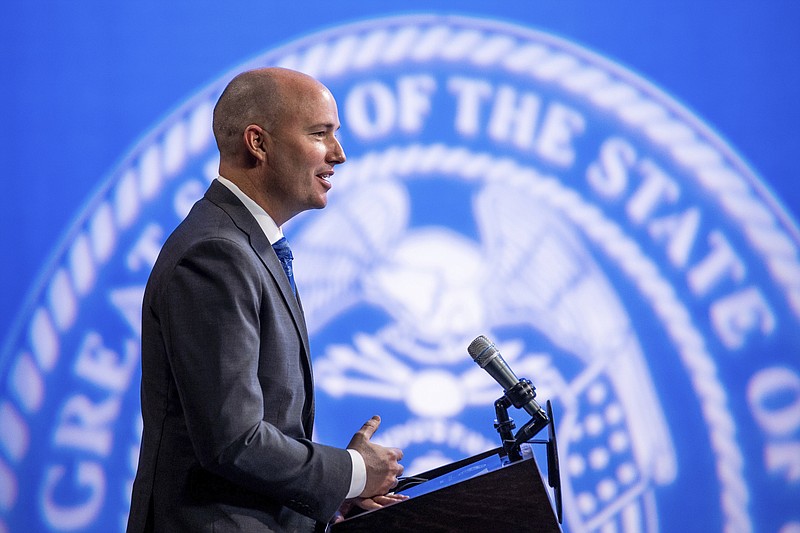SALT LAKE CITY -- Biological fathers in Utah will be legally required to pay half of a woman's out-of-pocket pregnancy costs under a new state law that critics say doesn't do enough to adequately address maternal health care needs.
The bill's sponsor has presented the measure as an effort to decrease the burden of pregnancy on women and increase responsibility for men who have children. But some critics argue the new legislation won't help women who are most vulnerable and could make abusive situations even more dangerous for pregnant women.
[Video not showing up above? Click here to watch » https://www.youtube.com/watch?v=KQ-rHrjGtwg]
Utah is the first state to mandate prenatal child support, according to the state's Planned Parenthood association and the bill's sponsor. But a few states, including Wisconsin and New York, have provisions that can result in fathers being financially responsible for pre-birth expenses.
Gov. Spencer Cox, a Republican, recently signed the proposal, which received widespread support in the GOP-controlled Legislature.
Republican state Rep. Brady Brammer said he decided to sponsor the measure because he had grown frustrated with the number of anti-abortion measures going through the Legislature and wanted to pursue legislation that would make it easier to bring life into the world.
"We want to help people and actually be pro-life in how we do it as opposed to anti-abortion," Brammer said. "One of the ways to help with that was to help the burden of pregnancy be decreased."
The bill would apply to a pregnant woman's health insurance premiums and any pregnancy-related medical costs, Brammer said.
If the paternity of the child is disputed, fathers won't be required to pay until after paternity is established. The father also wouldn't be financially responsible for the cost of an abortion received without his consent unless it's necessary to prevent the death of the mother or if the pregnancy was the result of rape.
In Utah, mothers already have the option to seek support related to birth expenses through the courts, but few do, said Liesa Stockdale, director of the state's Office of Recovery Services, which typically collects child support. She said mothers will now have the option to also seek pregnancy-related payments through the legal system, but it's unclear how often they will pursue it.
"I don't know how often it will be used," Stockdale said. "That's yet to be seen how often parents will choose to pursue these costs. But certainly if they do, we're here to collect."
The bill is not intended to lower the frequency of abortions, but Brammer said that could be a potential result.
Anti-abortion activists have lauded the bill, however, saying it will protect the lives of unborn children by supporting women through their pregnancy. Merrilee Boyack, chairman of the Abortion-Free Utah coalition, said she hopes this bill will decrease abortions in the state by lessening economic pressures on new moms.
"Anything we can do to support women in these circumstances will help them be able to give birth to their babies, feel good about that choice and feel supported along the way," Boyack said.
Democratic lawmakers and women's rights activists have questioned whether the new legislation on fathers helping to cover costs will actually meet women's needs.
Planned Parenthood spokeswoman Katrina Barker said she supports giving women more financial support but said there are better ways to help women, like expanding Medicaid, increasing access to contraception and providing paid parental leave.
Barker also said she doesn't believe this legislation will lead to fewer women having abortions because the costs of pregnancy are typically small compared with the costs of raising a child.
"In the grand scheme of things, having a child and raising them to adulthood is going to be a lot more money," Barker said.
Sophia Eppolito is a corps member for the Associated Press/Report for America Statehouse News Initiative. Report for America is a nonprofit national service program that places journalists in local newsrooms to report on undercovered issues.



